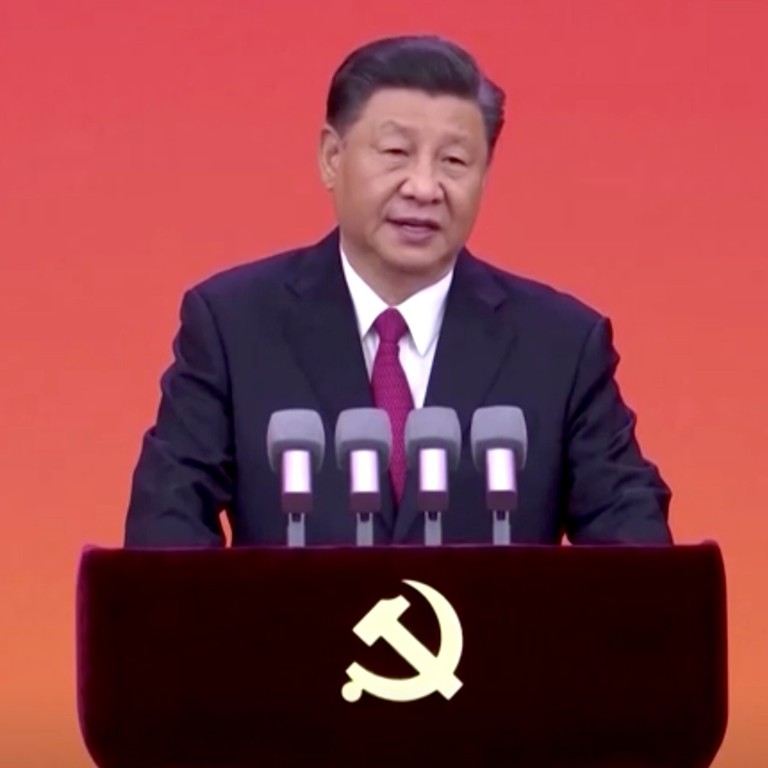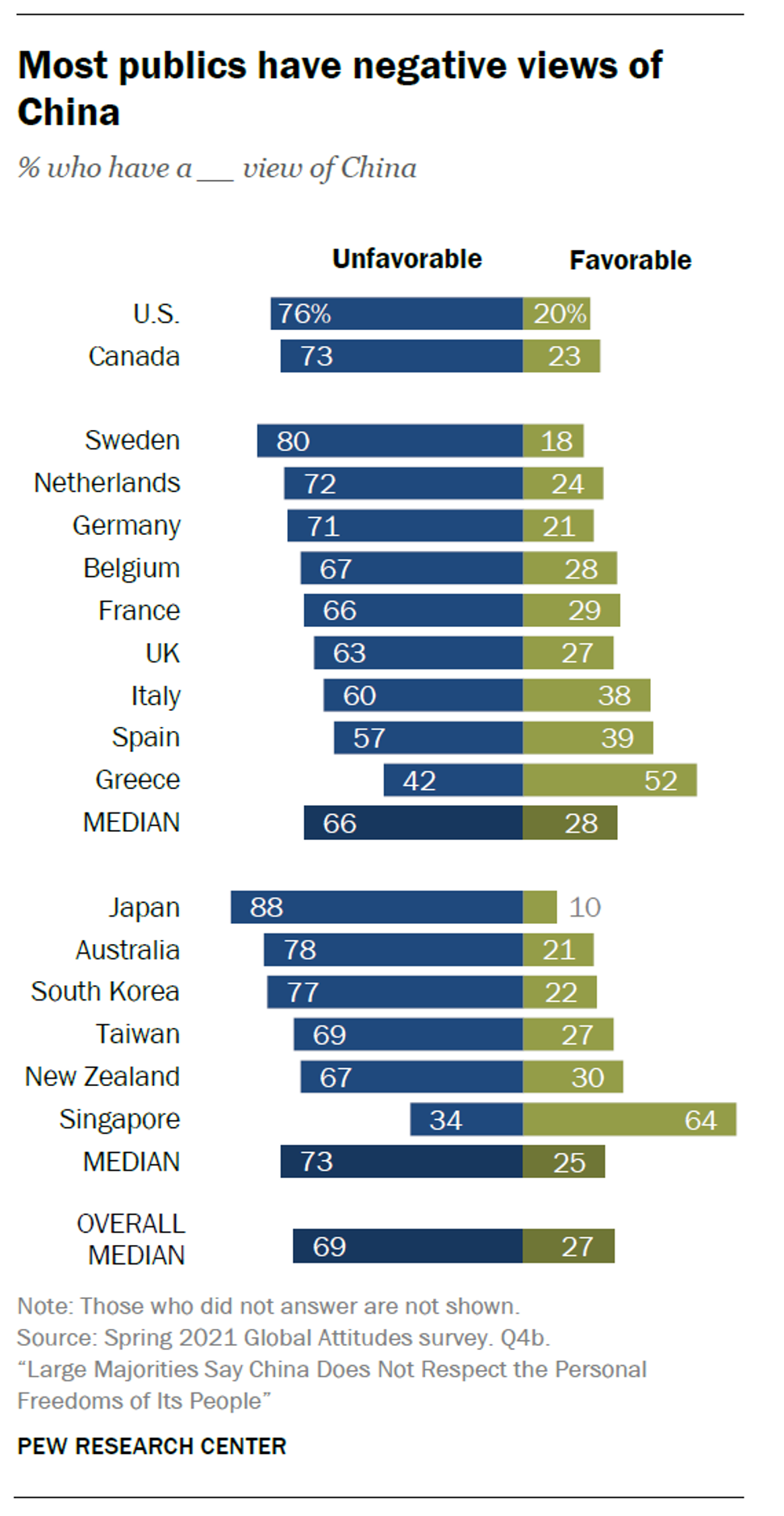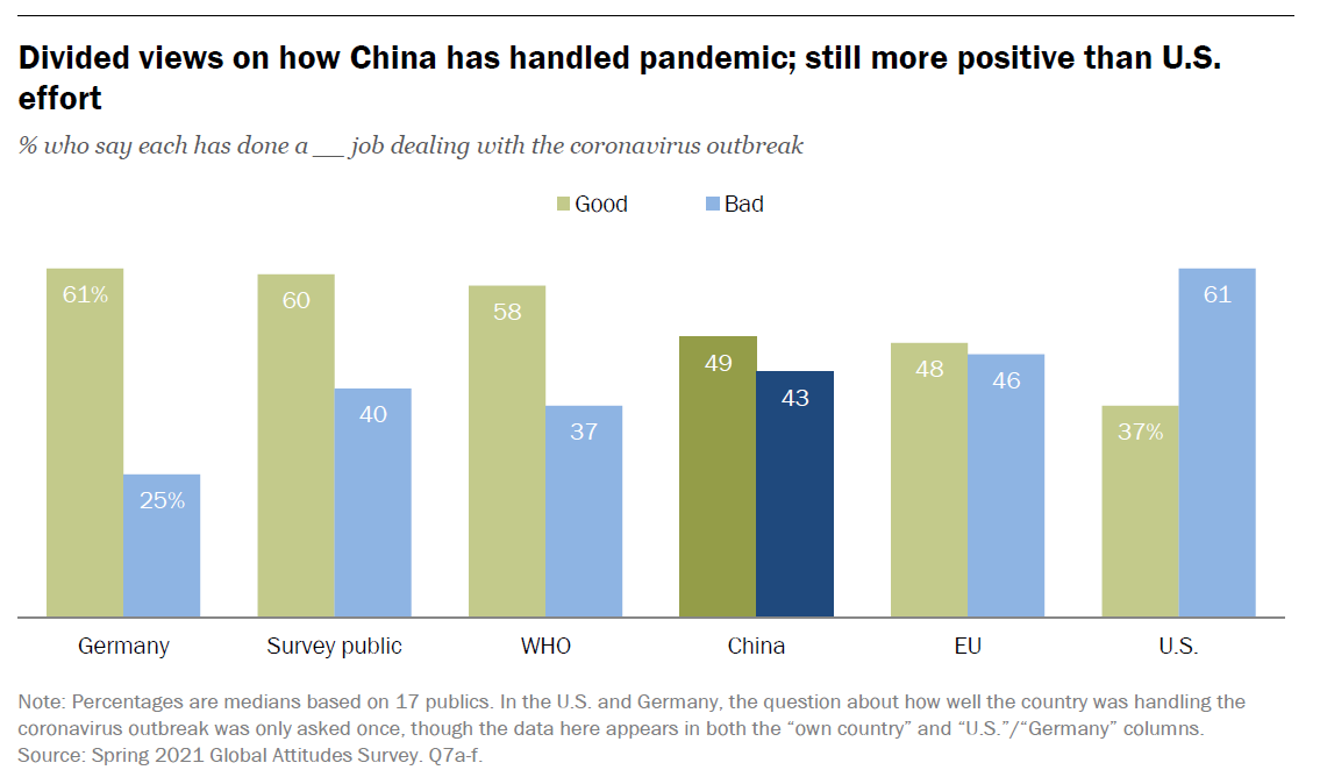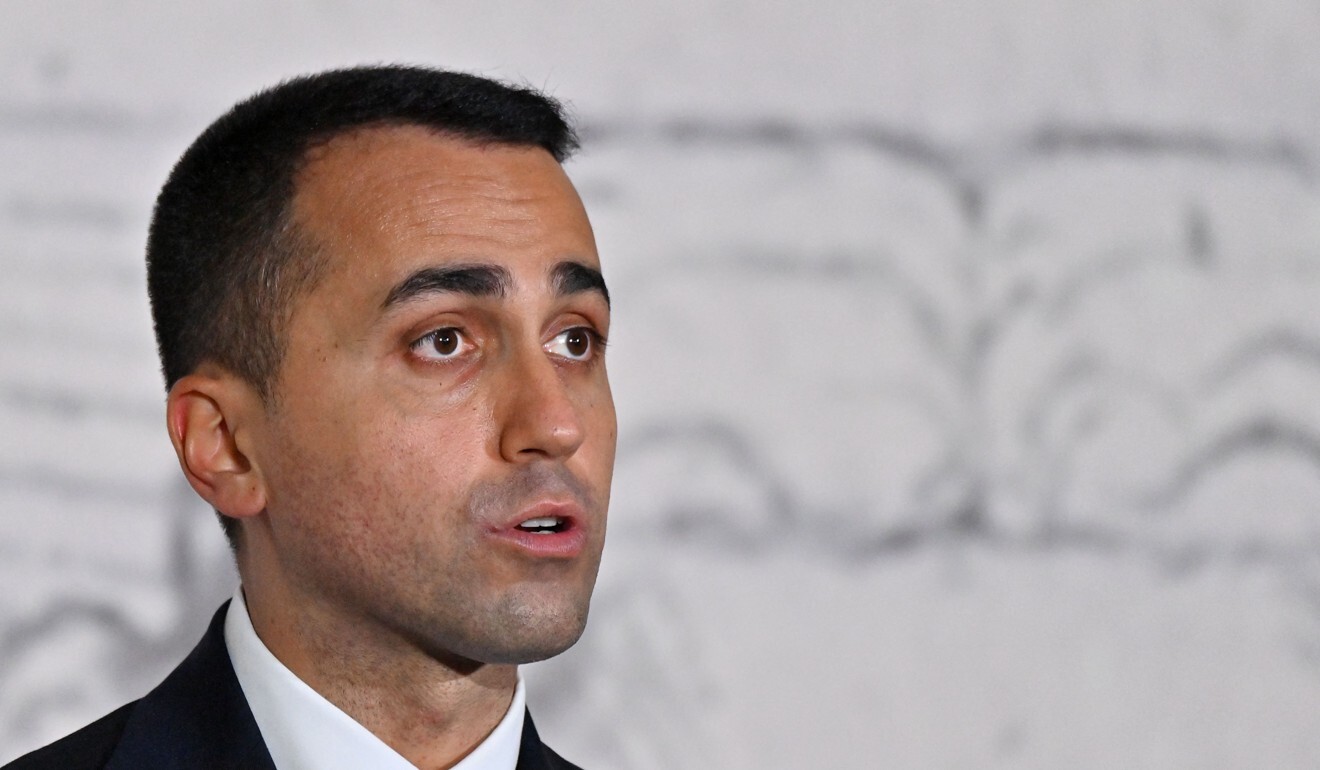
Negative views of China continue to dominate its international image, survey finds
- Pew Research poll of democracies shows dim view of China’s human rights record, little confidence in Xi Jinping’s handling of foreign affairs
- Slight improvement seen in global views about China’s response to the Covid-19 pandemic, with double-digit percentile increases in nine nations
Unfavourable views of China among the world’s most advanced economies stand at or near record highs, despite improving assessments of how the country has handled the coronavirus pandemic, according to a new public opinion poll.
A survey across North America, Europe and the Asia-Pacific released on Wednesday by the Washington-based Pew Research Centre showed respondents’ dismal judgment of China’s respect for human rights; little confidence in Chinese President Xi Jinping to handle foreign affairs responsibly; and, increasingly, a prioritising of economic ties with the US over those with China.
On Beijing’s respect for personal freedoms, negative opinions reached record highs in seven countries: Italy, South Korea, Greece, Canada, Australia, Britain and the Netherlands.
They were among 17 democracies included in Pew’s survey, which polled almost 19,000 adults between February and May.

In Japan, those with negative views of China rose to 88 per cent, nearing 2013’s record high of 93 per cent at the height of territorial disputes in the East China Sea.
And in South Korea, where spats with China over culture and history have fuelled a rise in anti-China sentiment, more than nine in 10 people said China did not respect its citizens’ personal freedoms, up from eight in 10 in 2018.
Singapore recorded the lowest proportion of people who said that China disregards human rights – yet even there, the figure stood at 60 per cent.
The other democracies polled by Pew were the United States, Taiwan, New Zealand, France, Germany, Spain, Belgium and Sweden.
Anti-China sentiment in US continues to rise, Pew survey finds
In the US, a years-long deterioration in public sentiment toward China continued, with negative views rising to 76 per cent. That is up 3 percentage points since last year and an increase of almost 30 percentage points since 2017, the start of former president Donald Trump’s administration.
That “may not sound like a lot”, said Laura Silver, senior researcher at Pew. “But that’s a pretty high-level understanding of the news for the average American to cite as a top-of-mind response.”
In comparison, surveys in previous years had seen far less frequent mention of issues like Tibet or the Dalai Lama, said Silver.
Taken as a whole, the new data from Pew indicate that Chinese officials face an uphill battle in fulfilling Xi’s recent edict to forge a “lovable and respectable” reputation for the country overseas.
“It is necessary to make friends, unite and win over the majority, and constantly expand the circle of friends [when it comes to] international public opinion,” Xi told members of the Politburo, the Chinese Communist Party’s (CCP) top decision-making body, last month.
Xi wants isolated China to ‘make friends and win over the majority’
The directive – an admission that China’s image had been exacerbated by aggressive “wolf warrior” diplomacy, as well as by ineffective propaganda and influence campaigns abroad – was timely: the Pew survey showed that confidence in Xi to “do the right thing” regarding world affairs stands at just 20 per cent.
The past year has seen a slight improvement in global views toward China’s handling of the Covid-19 pandemic. Even as criticism of the country’s initial response – and accusations of a cover-up – continue to swirl, the Pew survey saw double-digit increases in nine countries when it came to the percentage of people who thought Beijing had done a “good job” with the coronavirus outbreak, which was first reported in the Chinese hub city of Wuhan.
In Italy, home to one of the worst outbreaks in the early months of the pandemic, favourable assessments of China’s Covid-19 response reached 65 per cent, up from 51 per cent last year.
Compared with pandemic-response ratings that those surveyed gave to other entities, China (49 per cent approval) ranked behind Germany (61 per cent) and the World Health Organization (60), but ahead of the European Union (48).
The US, home to the highest number of known infections and deaths in the world – though now with the fastest vaccination rate as well – came in last with 37 per cent.

But the modest rehabilitation in global assessments of China’s pandemic response appears not to have mitigated the larger shift toward increasingly negative views of the country.
Further data from Pew indicated a prevailing opinion among respondents that their respective countries should value economic ties with the US over China, for instance.
Rising from 43 per cent in 2019 to 59 per cent this year, Australia saw the sharpest increase in those who wanted closer economic ties to the US over China, a sign that a deepening political rift between Beijing and Canberra is rubbing off on the Australian public.

“The image of the United States has almost boomeranged,” said Silver of Pew. “In terms of China, we haven’t seen the boomerang effect. Instead, what we’ve seen is that views of China have turned precipitously more negative in many of the places that we study.”
Western views of China more positive among those aged 18 to 24, survey finds
Pew has conducted polling on global views about China since the early 2000s, though the pool of countries it was able to survey has shrunk amid pandemic restrictions.
But while it has extensively studied views toward China, it has for several years been unable to conduct public opinion research within the country, owing to restrictions on the ability of foreign non-governmental organisations to operate there.
Silver said that Pew hoped to join with a local organisation to conduct research within China, but acknowledged that such an alliance could be a “sensitive” endeavour for Chinese partners given the nature of Pew’s areas of interest.
“There are plenty of things we could ask that are non-controversial,” she said. “But a lot of our work does deal with views of the United States, which can be sensitive, [and] views of democracy, which is certainly sensitive.”

